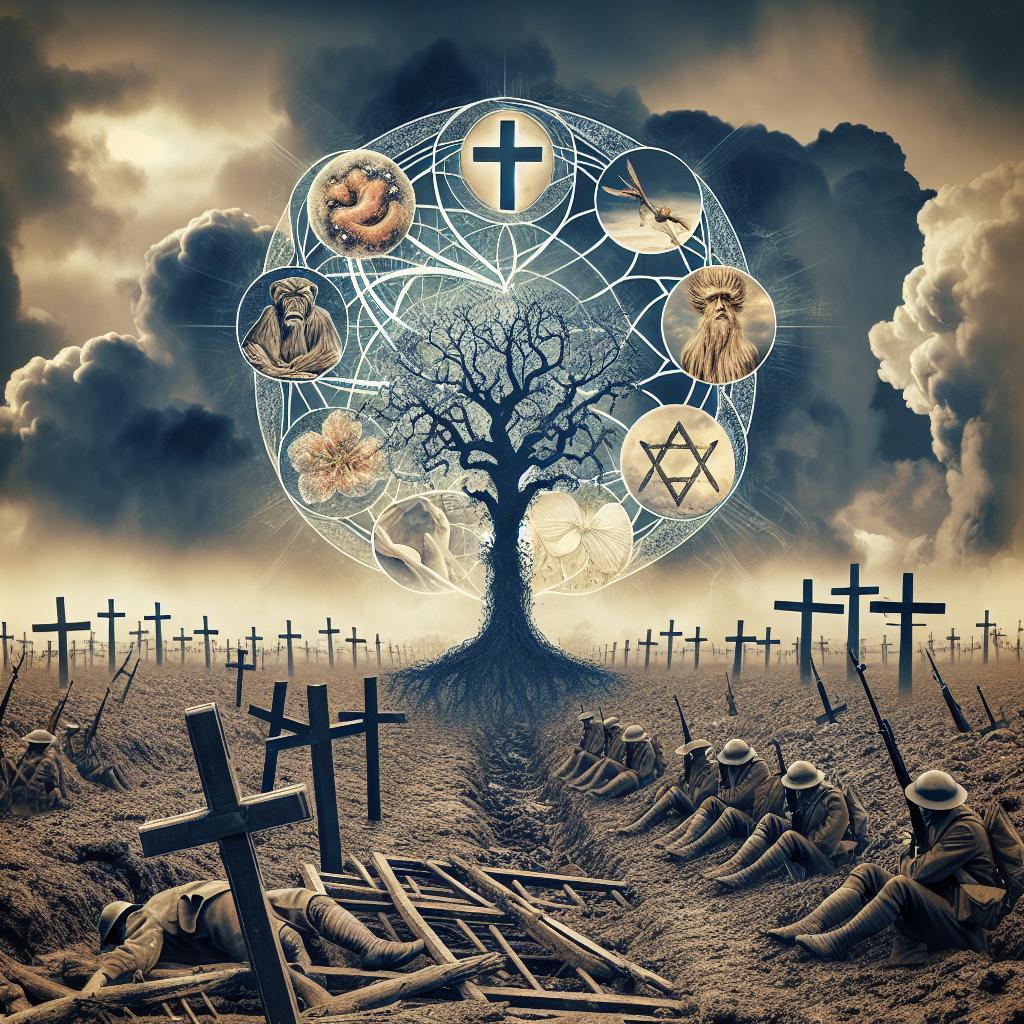
Darwinism's Impact on World War One: Unveiling the Spiritual Battle
Published: 04 June 2024
Darwinism and World War One
Darwinism, also known as evolutionary theory, had a significant impact on the events leading up to World War One. German intellectuals, in particular, embraced Darwinism and applied its concept of survival of the fittest to human society. This led to the belief that some individuals and races were more valuable than others and justified war on states deemed inferior. In this article, we will explore the influence of Darwinism on World War One from a young-earth Christian creationist perspective.
Darwinism and Ethical Implications
In the early 20th century, many intellectuals in Germany enthusiastically embraced Charles Darwin's ideas of evolution. Ernst Haeckel, a prominent German Darwinist at the time, believed that evolution would revolutionize humanity's worldview and argued for the abandonment of Christian morals. This shift in thinking challenged the previous belief in the sanctity of human life that was reflected in European law and thought.
Social Darwinism and Eugenics
The adoption of Darwinism by German intellectuals led to the development of social Darwinism, which argued for the superiority of certain races and individuals within those races. Zoologist and politician Karl Vogt even went as far as claiming that mentally handicapped children were closer in value to apes than to their own parents. This ideology laid the foundation for eugenics, the idea that selective breeding could improve the genetic quality of a population.
It is important to note that while eugenics was later taken to extreme measures by the Nazis during the Holocaust, it was already being promoted in Germany before World War One. The world's first eugenics society was founded in Germany, following the concept established by Francis Galton, who was Charles Darwin's cousin.
The Concept of a Master Race
German social Darwinists became enamored with the idea of a "master race," which they believed to be the Nordic or Germanic race. They coined the term "racial hygiene" to promote the idea of improving the genetic purity of this master race. This concept would later be embraced by the Nazis during World War Two.
Justifying War on Inferior States
The belief in German superiority, rooted in social Darwinism, led German Darwinists to justify war on states they deemed inferior. They believed that all races and states were engaged in a competition for survival, and war was seen as a means to either dominate or eliminate "inferior" races. This perspective considered war as inevitable, with peace being merely a temporary break in the continuous battle for survival between races and groups.
The Notion of Lebensraum
The concept of Lebensraum, or "living space," played a role in justifying German aggression during both World Wars. German leaders believed that without war, inferior or decaying races would hinder the growth of healthy elements within their own nation, leading to universal decadence. This ideology fueled the desire for territorial expansion and justified their actions as necessary for the survival and progress of the master race.
War as an Evolutionary Instrument
German Darwinists viewed war as an evolutionary instrument that tested the strength and fitness of competing nations. While some German Darwinists were pacifists, arguing that war would eliminate the best members of the master race, others believed that war was necessary to determine which nation was stronger. The fatalistic element of this viewpoint led German leaders to regard war as their preordained role in shaping the world.
Conclusion
While there were multiple factors that contributed to the outbreak of World War One, the influence of social Darwinism cannot be ignored. German intellectuals enthusiastically embraced Darwin's theories and applied them to human society, leading to the belief in racial superiority and justifying war on states deemed inferior. This distorted interpretation of Darwinism had devastating consequences during both World Wars.
Why This Matters
Understanding the influence of Darwinism on World War One helps us recognize the impact of ideas on historical events. It reminds us of the importance of critically examining ideologies and their potential consequences. By analyzing the connection between Darwinism and the war, we can deepen our understanding of the complex factors that shaped this significant period in history.
Think About It
Consider how ideas can shape societies and influence major historical events. Reflect on the ethical implications of different belief systems and how they can impact actions and decisions. What lessons can we learn from the connection between Darwinism and World War One? How can we ensure that our own beliefs align with biblical principles of love, justice, and respect for all individuals?
